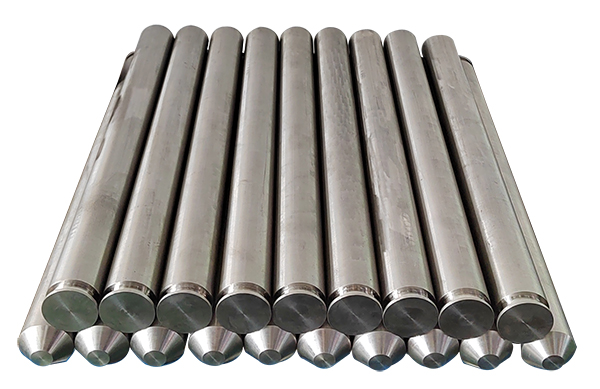Medical titanium material (Medical pure titanium) is a special metal material with high hardness. Medical titanium materials are mainly made of titanium with a purity of more than 99.5%. They have excellent biocompatibility and mechanical properties and are widely used in medical devices, human orthopedics and other fields.
First, let's look at the hardness of medical titanium materials. The hardness of medical titanium materials is generally between HB150 and HB320, depending on its organizational state and processing method. Hardness is an indicator of the resistance of materials to external forces and deformation. Generally speaking, the higher the hardness, the more difficult the materials are to be scratched or deformed.
Medical titanium materials usually exist in the form of titanium alloy or pure titanium, and titanium alloys are made by alloying titanium with other metal elements to improve the physical and chemical properties of materials. For example, common medical titanium alloys include Ti6Al4V (also called TC4), Ti6Al7Nb, etc. These titanium alloys have higher hardness, strength and corrosion resistance, and are suitable for medical devices and implants that withstand greater strength and durable use.

The hardness of medical titanium materials is closely related to its lattice structure, grain size, added elements, heat treatment and other factors. First, the hardness of medical titanium materials is related to their lattice structure. The lattice structure of titanium material belongs to hexagonal Z-dense packing structure (hcp), which makes titanium have certain plasticity and toughness; Secondly, the grain size also affects the hardness of medical titanium materials, and smaller grain size often increases the hardness of materials; In addition, adding alloying elements can change the hardness of medical titanium materials. For example, adding aluminum, iron and other elements can improve the hardness, but excessive alloying will reduce the biocompatibility; Heat treatment can adjust the hardness of medical titanium materials by changing the grain size and grain boundary structure.
The hardness of medical titanium materials is critical to the function and durability of medical devices and implants. Medical titanium materials with appropriate hardness should be selected for some instruments that need to be frequently stressed and rubbed, such as prostheses, dental implants, etc., to ensure their stability and reliability. In addition, the hardness of medical titanium materials will also affect the cutting and processing properties of materials. Higher hardness will increase the processing difficulty, so appropriate cutting processes and tools are required.
The content of this article comes from the network. If you have any questions, please contact me to delete it!

